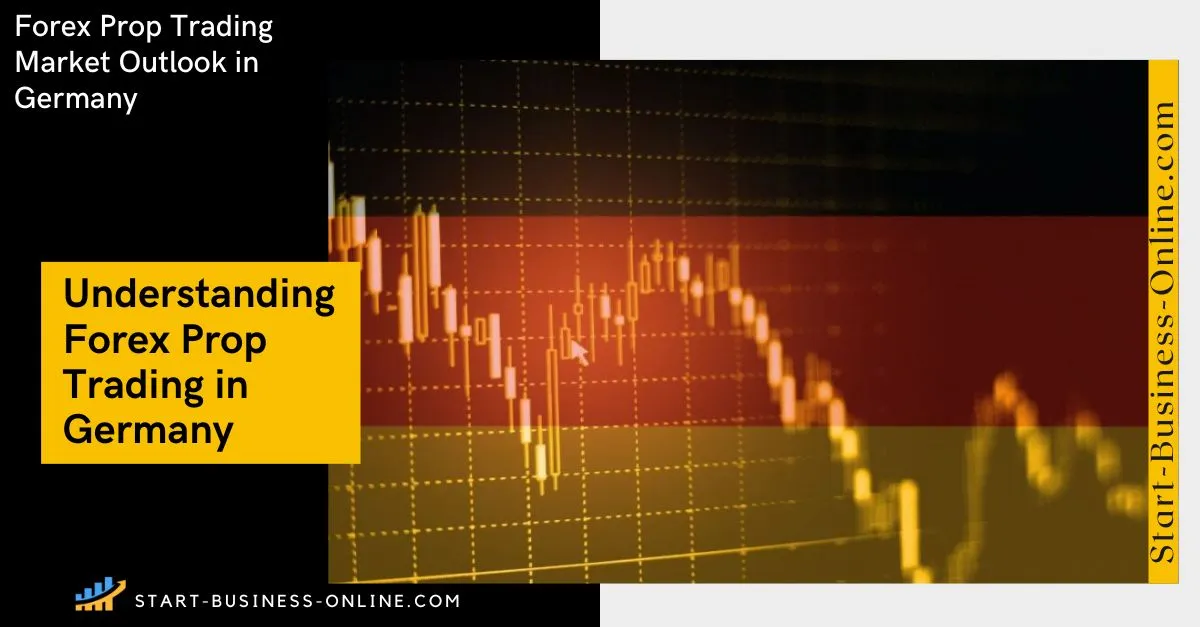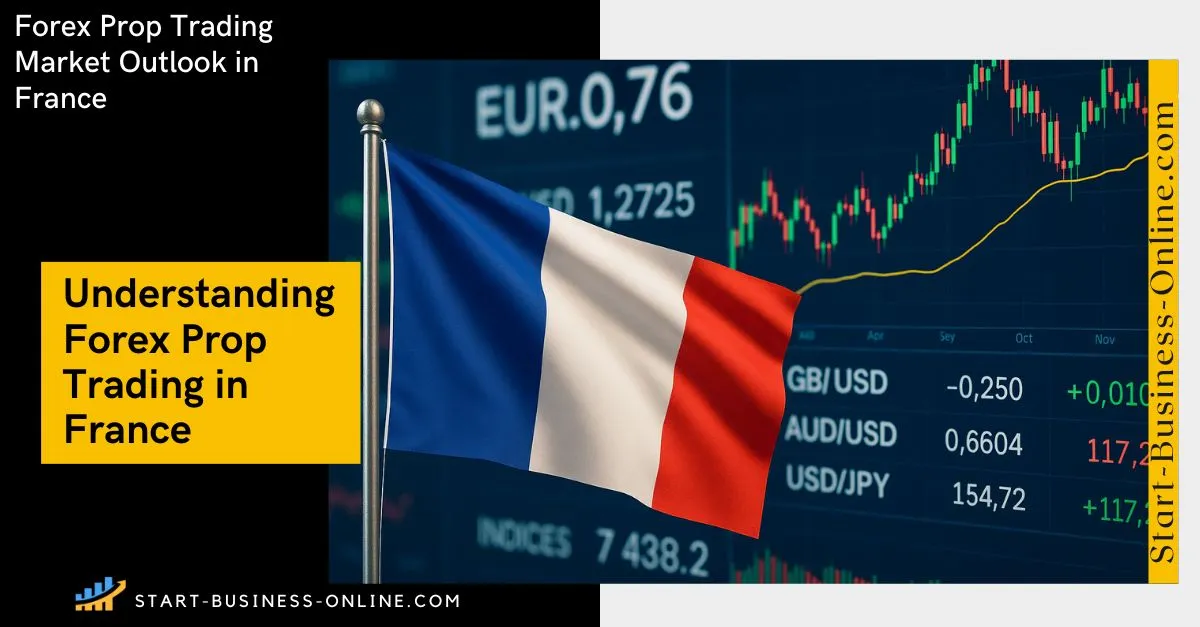South Africa's financial markets have undergone a dynamic transformation, emerging as a hub for trading and investment. Within this vibrant landscape, proprietary trading firms, or prop firms, have taken root, offering unique opportunities for traders to access capital and engage with diverse financial instruments. This article delves into the world of prop trading in South Africa, examining its operational framework, regulatory environment, and key considerations for selecting a reputable prop firm.
Page Contents
- 1. Understanding the Prop Trading Model
- 2. Prop Trading in South Africa: A Growing Presence
- 3. Navigating the South Africa Regulatory Landscape
- 4. Choosing a Reputable Prop Firm
- 5. Regulation, Investor Protection, and Taxation
- 6. The Path to Becoming a Fully Funded Trader
- 7. Evaluating Funded Trading Programs
- 8. Key Factors for Selecting a Prop Firm
- 9. Leverage and Risk Management
- 10. Conclusion
- 11. Prop Trading in South Africa Frequently Asked Questions (FAQs)
View more
Understanding the Prop Trading Model
Prop firms distinguish themselves by utilizing their own capital for trading activities, aiming to generate profits through various strategies. These strategies range from rapid-fire scalping, capturing fleeting market movements, to longer-term swing trading, capitalizing on broader price swings. Algorithmic trading, employing automated systems to execute trades based on predefined criteria, is also a prevalent strategy within the prop trading sphere.
Unlike traditional brokerage firms that derive revenue from client commissions, prop firms generate profits directly from their trading endeavors. This model aligns the firm's interests with those of its traders, fostering a collaborative environment where success is shared.
Prop Trading in South Africa: A Growing Presence
Prop firms in South Africa play a vital role in the financial ecosystem, injecting liquidity into markets and contributing to efficient price discovery. They not only bolster the nation's economic activity but also provide aspiring traders with the chance to hone their skills and potentially earn substantial profits using firm-provided capital. This arrangement allows traders to minimize personal risk while maximizing their earning potential.
Navigating the South Africa Regulatory Landscape

While prop trading is a legal and growing sector in South Africa, it operates within a relatively unregulated environment. The Financial Sector Conduct Authority (FSCA) oversees financial markets and licensed brokers, but prop trading itself is not subject to stringent regulations. However, prop firms must adhere to essential practices like Know Your Customer (KYC) and Anti-Money Laundering (AML) procedures to ensure compliance and transparency.
Choosing a Reputable Prop Firm
Selecting a prop firm requires careful consideration. Traders should prioritize firms that demonstrate a commitment to ethical practices and prioritize the interests of their traders. Key factors to consider include:
- FSCA Regulation: Opt for firms regulated by the FSCA or those partnering with licensed brokers to ensure a higher degree of oversight and protection.
- Reputation and Reviews: Thoroughly research the firm's reputation, seeking out online reviews and testimonials from other traders to gauge their experience and satisfaction.
- Realistic Expectations: Exercise caution with firms that promise unrealistic returns or downplay the inherent risks of trading.
- Transparent Terms: Carefully review the firm's contractual terms, paying close attention to fee structures, profit-sharing arrangements, and risk management protocols.
Regulation, Investor Protection, and Taxation
The current regulatory framework for prop trading in South Africa is relatively light-touch, meaning firms don't require specific licenses unless they also operate as brokers. However, if a firm collaborates with a broker, that broker must hold an FSCA license. Traders should prioritize firms that operate within legal boundaries and demonstrate a commitment to protecting their interests.
Income generated from trading activities, including prop trading, is subject to taxation in South Africa. Traders should consult with tax professionals to ensure compliance with local tax laws and understand the implications for their individual circumstances.
The Path to Becoming a Fully Funded Trader
For aspiring traders seeking to secure funding through a prop firm, the journey typically involves several key steps:
- Account Opening: Begin by selecting a reputable prop firm and opening a demo or live trading account.
- Skill Demonstration: Consistently demonstrate your trading proficiency by effectively managing risks and generating profitable trades.
- Evaluation: Most prop firms require traders to undergo an evaluation process that assesses their trading strategies, risk management practices, and overall performance.
- Funding: Upon successful completion of the evaluation, traders gain access to a funded account, empowering them to trade with the firm's capital.
Evaluating Funded Trading Programs
When assessing funded trading programs, consider the following:
- Participant Feedback: Seek out reviews and testimonials from current or former participants to gain insights into the program's strengths and weaknesses.
- Legal Compliance: Ensure the firm adheres to all relevant South African financial regulations.
- Candidate Requirements: Evaluate the program's entry criteria, including skill level expectations, performance metrics, and any required training.
- Profit-Sharing and Capital Structure: Analyze the profit-sharing model and the capital allocation provided to traders.
- Support and Resources: Prioritize programs that offer comprehensive training, educational resources, and access to advanced trading tools.
Key Factors for Selecting a Prop Firm

- FSCA Regulation: Firms regulated by the FSCA provide an added layer of security and oversight.
- Local Presence and Support: Choose firms with a local presence in South Africa and readily accessible customer support.
- ZAR Compatibility: Opt for firms that support deposits and withdrawals in South African Rand (ZAR) to avoid currency conversion fees.
- Competitive Fees: Prioritize firms with transparent and competitive fee structures.
To help you select the right prop trading firm and funded trading program for your prop trading endeavors in South Africa, our resident team of experts has reviewed and evaluated a vast array of firms to present you with a list of top-notch options for South African traders:
The Best Prop Trading Firms in 2026
Rating breakdown
Things we liked:
Unlimited time for completionReal Funding and Daily Payouts
Things we didn't like:
High challenge difficultyRating breakdown
Things we liked:
Unlimited time for completionReal Funding and Daily Payouts
Things we didn't like:
Futures onlyNo free retry
Rating breakdown
Things we liked:
Up to 100% Profit SplitUnlimited Number of Trading Days
Fast Payouts
Things we didn't like:
10% Max Loss Limit on Accounts$10 Withdrawal Processing Fee
No swap free accounts
| Prop Firm | Prop firms that restrict clients from South Africa |
|---|---|
| Apex Trader Funding | |
| Topstep |
Leverage and Risk Management
Traders in South Africa can access high leverage, amplifying their potential profits. However, leverage is a double-edged sword, and traders must exercise caution and implement robust risk management strategies to mitigate the potential for significant losses.
Conclusion
Prop trading firms offer a compelling pathway for South African traders to access institutional capital and participate in global financial markets. However, due diligence is paramount when selecting a prop firm. Ensure the firm is reputable, operates within the legal framework, and provides the necessary resources and support for traders to thrive. With the right prop firm as a partner, traders can unlock their full potential, pursuing profit while minimizing personal financial risk.
Prop Trading in South Africa Frequently Asked Questions (FAQs)
Yes, proprietary trading is legal in South Africa. Proprietary trading firms can operate in compliance with the country’s financial regulations and are subject to oversight by the Financial Sector Conduct Authority (FSCA). However, while prop firms operate legally, not all are heavily regulated, so it's important to choose reputable firms.
Proprietary trading in South Africa, like elsewhere, carries significant risk. The level of risk depends on market volatility, the strategies employed, and how well capital is managed. While traders can make substantial gains, they can also incur significant losses if proper risk management isn’t applied.
- Learn trading fundamentals: Gain in-depth knowledge of different trading strategies and risk management techniques.
- Choose a reputable funding company: Research and select a prop firm that offers funding programs.
- Apply and pass evaluation: Many firms require passing a selection process or challenge, often involving a demonstration of trading skills and risk management.
- Start trading with the firm’s capital: Once you pass, you’ll be granted a funded account to trade with the firm’s capital.
Yes, it can be profitable to be a funded trader, but success depends on various factors such as your trading skills, risk management, market conditions, and the terms of the funding agreement. While the potential for high rewards exists, traders should be mindful of the risks involved and manage their trades carefully to maximize profitability.
Prop trading is overseen by the FSCA in South Africa, although it is not as tightly regulated as other financial activities. Most regulation revolves around Know Your Customer (KYC) and Anti-Money Laundering (AML) procedures. Prop firms don’t require specific licenses unless they are also brokers.
- FSCA regulation: Ensure the firm or its partner broker is regulated.
- Reputation: Check reviews and ask other traders for recommendations.
- Realistic promises: Be cautious of firms offering guaranteed profits or minimal risk.
- Contract terms: Review fees, capital requirements, and risk-sharing agreements before signing up.
Yes, trading profits are subject to income tax in South Africa. The country applies a progressive income tax rate, which can range from 18% to 45%, depending on the amount earned. It's advisable to consult a tax professional to ensure compliance with tax laws.
Yes, international prop firms can operate in South Africa. Due to the relatively low barriers to entry, many global firms offer services to South African traders. However, it’s crucial to verify whether these firms operate through licensed brokers and comply with South African regulations.
Leverage in South Africa can be very high, with some firms offering aggressive leverage ratios, even up to 1. While leverage can amplify profits, it also increases potential losses, making it essential for traders to manage risk carefully.
- Market risk: Fluctuations in market prices can lead to unexpected losses.
- Leverage risk: Using high leverage can amplify both gains and losses.
- Firm risk: The reputation and stability of the prop firm are important. Working with a firm that’s unregulated or lacks transparency can expose you to scams or financial instability.
- Profit-sharing fees: The firm may take a percentage of your profits.
- Challenge or evaluation fees: Some firms charge upfront for testing your trading skills.
- Platform fees: Fees for using proprietary or third-party trading platforms.










